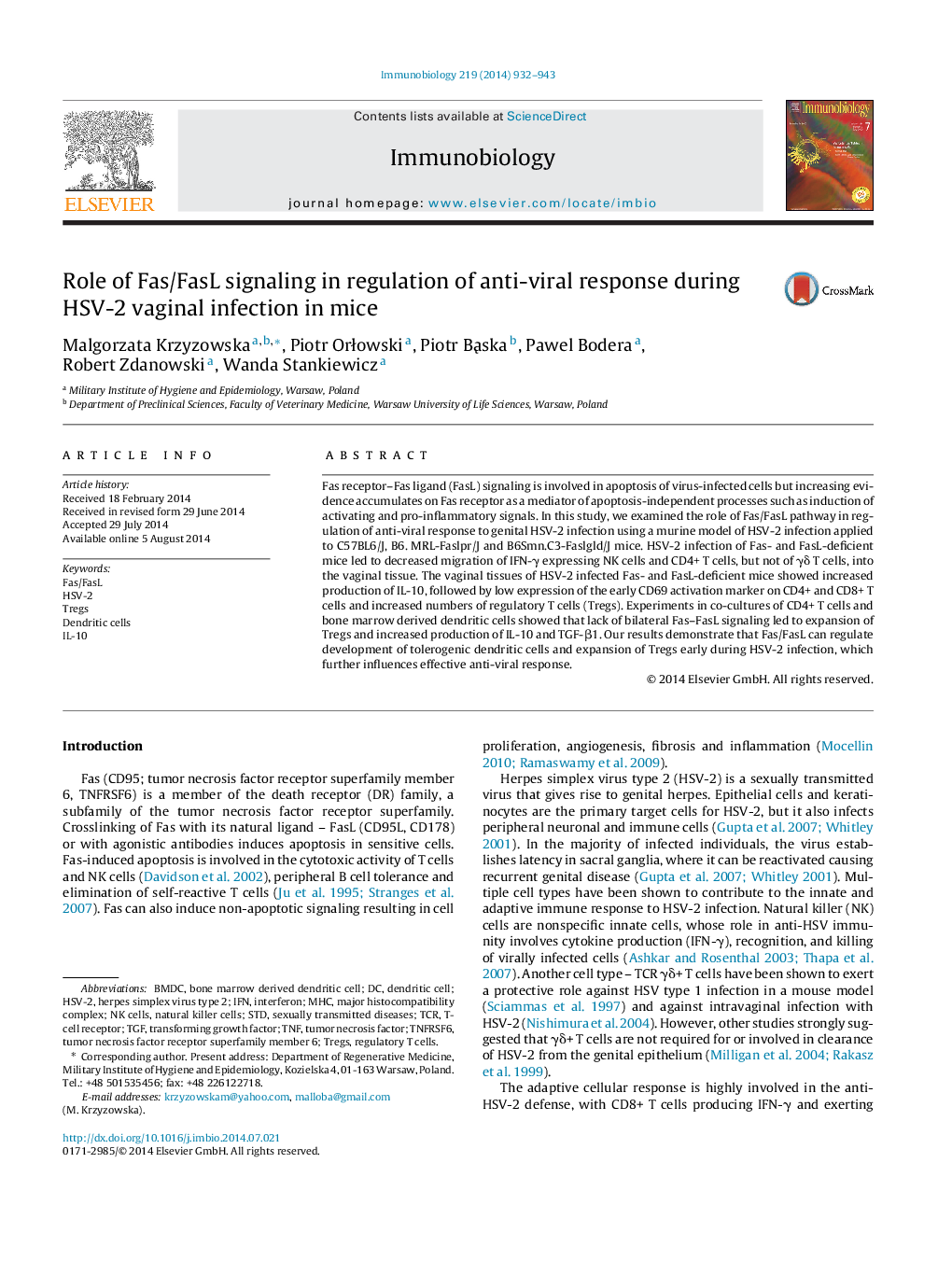| کد مقاله | کد نشریه | سال انتشار | مقاله انگلیسی | نسخه تمام متن |
|---|---|---|---|---|
| 2182817 | 1095518 | 2014 | 12 صفحه PDF | دانلود رایگان |

Fas receptor–Fas ligand (FasL) signaling is involved in apoptosis of virus-infected cells but increasing evidence accumulates on Fas receptor as a mediator of apoptosis-independent processes such as induction of activating and pro-inflammatory signals. In this study, we examined the role of Fas/FasL pathway in regulation of anti-viral response to genital HSV-2 infection using a murine model of HSV-2 infection applied to C57BL6/J, B6. MRL-Faslpr/J and B6Smn.C3-Faslgld/J mice. HSV-2 infection of Fas- and FasL-deficient mice led to decreased migration of IFN-γ expressing NK cells and CD4+ T cells, but not of γδ T cells, into the vaginal tissue. The vaginal tissues of HSV-2 infected Fas- and FasL-deficient mice showed increased production of IL-10, followed by low expression of the early CD69 activation marker on CD4+ and CD8+ T cells and increased numbers of regulatory T cells (Tregs). Experiments in co-cultures of CD4+ T cells and bone marrow derived dendritic cells showed that lack of bilateral Fas–FasL signaling led to expansion of Tregs and increased production of IL-10 and TGF-β1. Our results demonstrate that Fas/FasL can regulate development of tolerogenic dendritic cells and expansion of Tregs early during HSV-2 infection, which further influences effective anti-viral response.
Journal: Immunobiology - Volume 219, Issue 12, December 2014, Pages 932–943